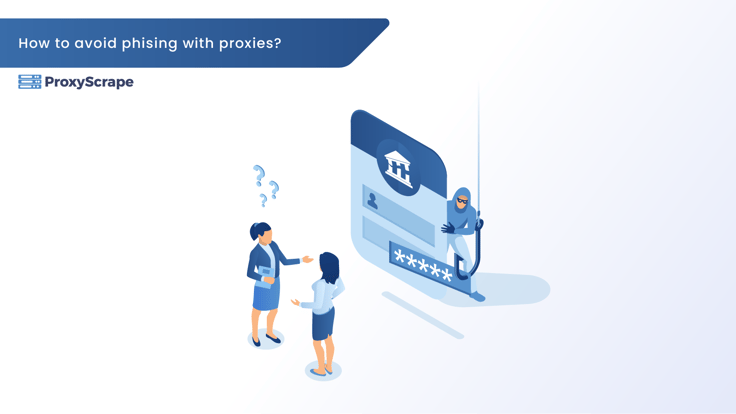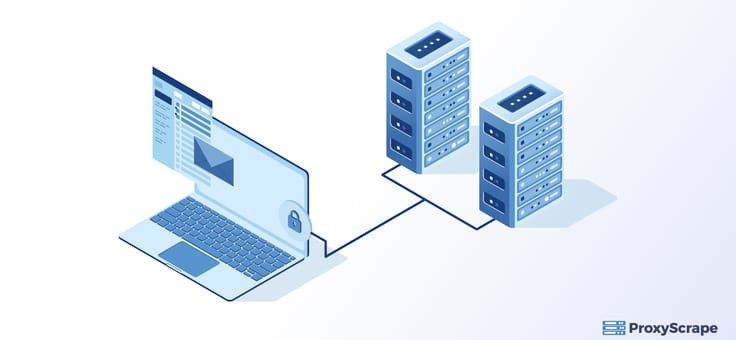
As more and more internet users have become Phishing victims through malicious acts of cybercriminals, it is well worth looking at some of the measures that cybersecurity firms can implement to curb Phishing. Although many cybersecurity firms focus on combating Phishing, some of the techniques that hackers implement can be challenging to overcome. In this
As more and more internet users have become Phishing victims through malicious acts of cybercriminals, it is well worth looking at some of the measures that cybersecurity firms can implement to curb Phishing.
Although many cybersecurity firms focus on combating Phishing, some of the techniques that hackers implement can be challenging to overcome. In this article, we will focus on the use of proxies to combat it. However, first things first, and let’s begin with an introduction of Phishing and its different forms.

What is a phishing attack, and how do they operate?
The sole purpose of Phishing is to steal confidential and sensitive information from an individual or an organization through emails, text messages, advertisements, or fake websites which appear to be legitimate. Cybercriminals frequently implement it by sending random emails with a link containing an attachment or a link to a website appearing to be legitimate to the naked eye at first glance.
In both the above instances, the general user will be tempted to click it, resulting in either malware being injected into your device or sensitive information going into the hands of crooks.
Let’s further drill down the primary forms of Phishing.
What are the different types of Phishing?
While there can be numerous types of Phishing in this article, we would look into four main types:
Deceptive Phishing
This is the most common phishing technique that cybercriminals employ. It intends to mimic a login page of a reputed website by copying its HTML, CSS, and JavaScript with minor updates to the code. Then the cybercriminals would send this link to random users by creating urgency to act on it. When such users click the link, it appears legitimate and hence will provide their login credentials.
This attack aims to obtain the login credentials to sneak into a company’s website and cause massive damage.
Malware-Based Phishing
In Malware-Based Phishing, the cybercriminal sends an email with a downloadable link or an attachment. The most common attachments are in the form of invoices asking you to pay. Then in most circumstances, people would be tempted to open them.
Once you open it, it would download and inject malware, including but not limited to Trojan horses, viruses, worms, ransomware, or any other malicious programs, into your computer. Even worse, if your computer is connected to a network, it will infect the entire network as well.

Spear Phishing
Spear Phishing is a more personalized form of attack when compared with the two mentioned above. You’re likely to get a customized email with your name, address, company name, and any other personal information that they have acquired using your company’s website or your social media account such as LinkedIn. Once they send it to you, you would be inclined to believe that it’s from a genuine user, so you would download the attachment or click on a link.
Then, as a result of clicking this link or the attachment, your data will be in the hands of hackers and cybercriminals. Since these emails seem more legitimate, the standard email filters cannot detect these emails making such filters ineffective. A most prominent example of a sphere attack would be you getting mail from what appears to be from your HR department requesting you to verify your benefits policy details.
Whaling
Whaling is the process in which the attacker targets the CEOs and senior executives of an organization. For this reason, it is also called CEO fraud as well.
An attacker executes such an attack by first stealing the login credentials of a CEO. Then they send an email from the CEO’s account to an employee of that organization requesting to execute a wire transfer of money to a preferred financial institution.
As these types of emails are not bulky, the standard spam detection mechanisms do not seem to filter them. Also, in these scenarios, the attacker carefully targets the victim. A typical example of a whaling attack would be receiving an email from who appears to be your CEO requesting to wire transfer money into a financial institution of the attacker’s choice.
How could proxies assist in overcoming Phishing?
In other articles on our blog, you may have learned that proxies play a tremendous role in overcoming the challenges of web scraping and geographical restrictions by being anonymous. Likewise, it can also play a role in cybersecurity by implementing large-scale data gatherings.
Protection of email through proxies
Firstly, an email scraper would allow you to scan your incoming and outgoing emails to investigate any Phishing attempts. For the incoming emails, the scraper will check for any suspicious emails as the attackers try to produce email content as close to as possible of the original sender. Then the scraper will also scan the links in the mail to identify if they lead to illegitimate links.
After this process, the scraper scans the attachments in the email to detect any malicious entities. If such entities or software is detected, they’re being opened in a virtual machine to monitor all the processes, including communication with external servers.
Which type of proxies is most suitable for email protection?
Cybercriminals continually monitor incoming and outgoing connections in an email application. So if they detect that connections are arriving from the same IP address, they can assume that the validation mechanism is performed on every email. In such circumstances, you would need to rotate proxies.
If you had to choose between Datacenter or Residential proxies the former would be the ideal choice. This is because the crawlers rely on speed, uptime, and efficiency. Also, since most of the phishers target companies under one subnet, most Datacenter IPS come from a single subnet would further enhance the email protection.

Conclusion
Now you have learned about different types of Phishing and how you can protect your emails from proxies with the help of a scrapper. With the escalating number of cybercriminals employing sophisticated Phishing techniques, proxies would be your ideal solution to overcome this devastation.
Proxyscrape can assist you with the Datacenter proxies that are ideal for protecting you from Phishing.